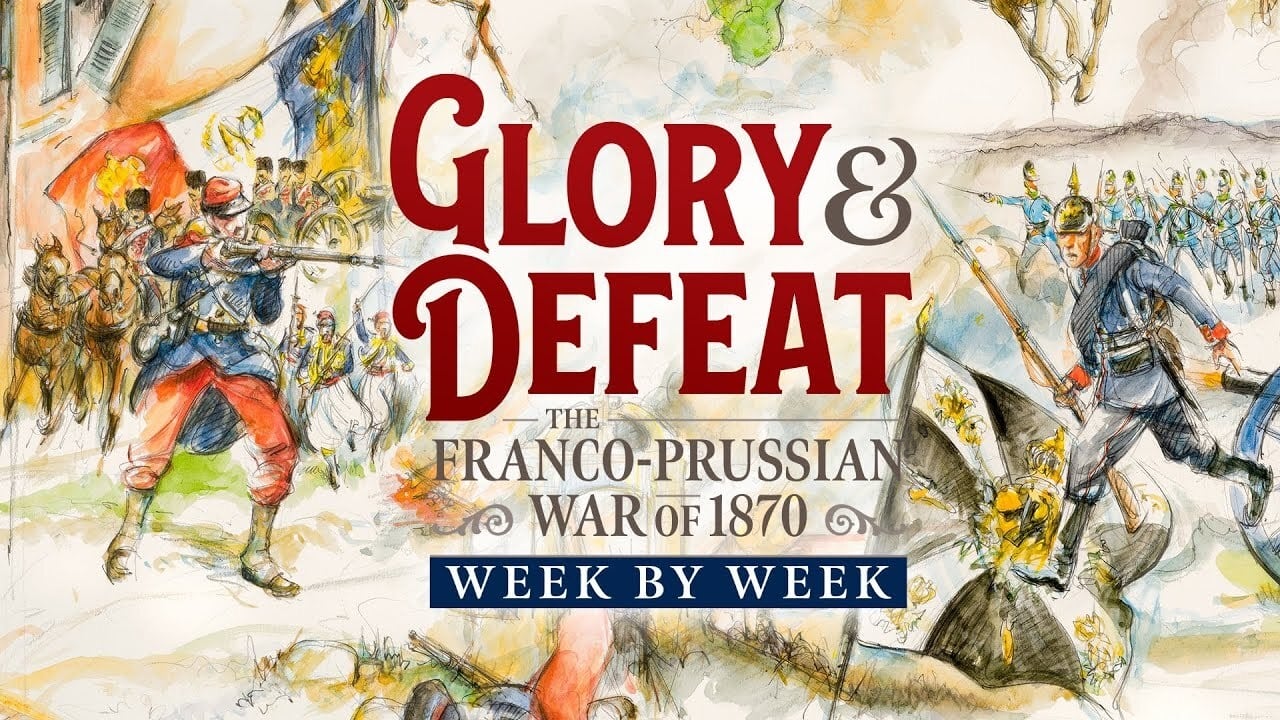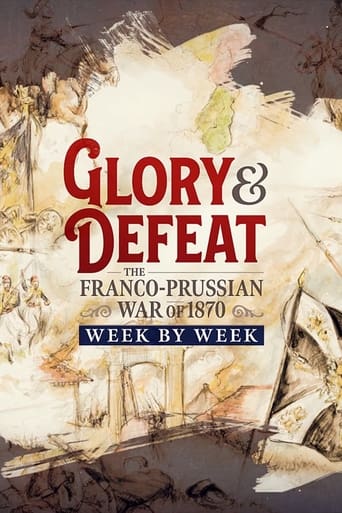Real Time History Season 2023

Realtimehistory creates chronological documentaries such Rhineland 45 and 15 Days in Berlin. They are also know as the team behind the youtube hit series The great War. Now they will cover one of the pivotal wars of the 19th century in real time: the Franco-Prussian War.
Watch NowWith 30 Day Free Trial!
Real Time History
1
Realtimehistory creates chronological documentaries such Rhineland 45 and 15 Days in Berlin. They are also know as the team behind the youtube hit series The great War. Now they will cover one of the pivotal wars of the 19th century in real time: the Franco-Prussian War.
Watch Trailer
Real Time History Season 2023 Full Episode Guide
In 1945 US forces are advancing towards Japan, but the road to victory will be bloody.
December 7, 1941: The Japanese attack on Pearl Harbor shocked the world and brought the US into the Second World War. But why did the Japanese resort to such an attack against a powerful rival and what did it have to do with the Japanese war in China?
In February 1943, Rommel’s panzers are again on the attack in North Africa. This time he’s facing untested US troops in the mountains of Tunisia - but the clock is ticking. As his veterans batter their way through the Kasserine Pass, the British are steadily advancing behind him. The Desert Fox has a bold plan to defeat the Allies in Tunisa for good. Little does he know, however, it will be his last battle in the field - and will soon lead him to total defeat in what some later will call Tunisgrad.
In summer 1943, Germany and the Soviet Union fought the arguably biggest single battle in history with millions of men, thousands of tanks and artillery guns – the battle of Kursk. The German Army wanted to hit the Red Army so hard that they couldn’t go on the offensive again. And indeed, new research shows that the Soviets suffered shockingly high casualties, up to 6 times more men and equipment. But why then did the Germans lose this historic battle?
The Anglo-Zulu War in 1879 is one of the most well known colonial wars of the British Empire. And while the British ultimately won and annexed the Zulu Kingdom, at the Battle of Isandlwana they suffered one of their worst defeats.
In 1965, US troops officially landed in Vietnam, but American involvement in the ongoing conflict between the Communist North and the Anti-Communist South had started more than a decade earlier. So, why did the US-Vietnam War break out in the first place?
After the French success in the Battle of Na San, the battle of Dien Bien Phu is supposed to defeat the Viet Minh once and for all. But instead the weeks long siege becomes a symbol of the French defeat in Vietnam.
After the Second World War multiple French colonies were pushing towards independence, among them Indochina. The Viet Minh movement under Ho Chi Minh was clashing with French aspirations to save their crumbling Empire.
After defeating the Axis in North Africa, the stage was set for the first Allied landing in Europe. The target was Sicily and in summer 1943 Allied generals Patton and Montgomery set their sights on the island off the Italian peninsular.
After Napoleon's disastrous retreat from Russia he was still able to put up a fight and was determined to beat the enemy coalition in the German lands. But after a spring campaign and the battle of Grossbeeren, and the later battles of Bautzen and the Katzbach, the Emperor was beaten at the Battle of Leipzig 1813
Since the inception of the nuclear bomb, military strategists have tried to figure out how to use them best. During the Cold War, this led to two very different doctrines but on both sides of the Iron Curtain the military wasn't sure of you could actually win Nuclear War.
In 1937 Japan invaded the Republic of China after already annexing Manchuria in 1931. With the international settlements in Shanghai, the military support through Nazi Germany and the Soviet Union and the general escalation of the war, many argue that 1937 marked the start of the Second World War in Asia.
The summer of 1944 saw the Allies land in France not once but twice. Two months after Operation Overlord, the Allies also landed in Southern France during Operation Dragoon. It was "the perfect landing" and opened up the important ports of Marseille and Toulon for Allied logistics.
The North African campaign of WW2 is one of the most famous ones. The almost mythical story of the British "Desert Rats" defeating Erwin Rommel's Afrika Korps. But why did Rommel loose in North Africa?
After the Warlord Era, the Chinese Civil War was primarily fought between the Kuomintang under Chiang Kai-Shek and the Chinese Communists. Several attempts to defeat the Communists failed because they used effective guerilla tactics or simply evaded the enemy to fight another day, like during the famous Long March.
The question about the first modern war has caused lively debates among historians and YouTube comment sections alike. In this video we take a look at a few candidates and some arguments why they are or aren't modern wars.
The Crimean War between the Ottoman Empire and Russia (and later the UK and France) has been called the last crusade and the first modern war at the same time.
It's common wisdom that the nuclear bombs dropped over Hiroshima and Nagasaki caused the Japanese surrender at the end of the 2nd World War. However, there has been a fierce historical debate if this narrative omits the role of the Soviet invasion of Manchuria in August 1945 - or if this invasion was actually the main cause for the surrender.
After the brief summer 1813 cease fire, Napoleon's campaign in Germany resumes. Surrounded by the Allies - which also manage to slowly turn the tide at Großbeeren, Dennewitz, Kulm and Dresden, his only remaining option is the ultimate battle which takes place in October 1813 at Leipzig: The Battle of Nations.
When Nazi Germany attacked the Soviet Union in 1941, Napoleon's failed campaign was on many minds. Hitler specifically wanted to avoid a repetition of 1812 and even when his luck ran out was adamant to avoid any comparisons.
Free Trial Channels
Seasons


























